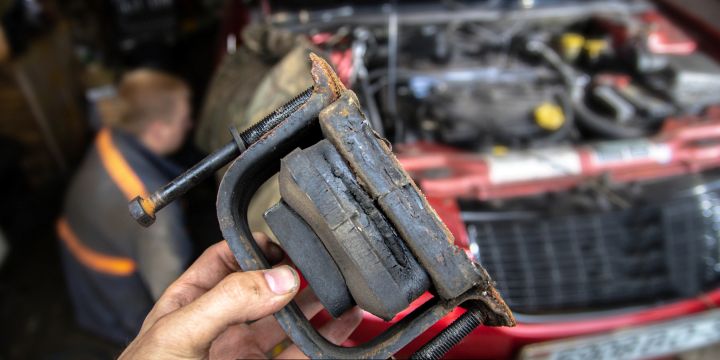Key Takeaways
- Iowa’s Lemon Law protects consumers purchasing defective vehicles.
- The law outlines specific eligibility criteria and the claims process.
- Understanding your rights under the Lemon Law can empower you to seek fair resolutions.
- Legal resources and support are available to navigate complicated cases.
Introduction
Buying a new car is exciting, often symbolizing freedom and new beginnings. However, this experience can quickly become frustrating for some if faced with a vehicle that falls short of reliability and quality expectations. In Iowa, consumers are protected under the state’s Lemon Law, which is designed to address and rectify situations involving persistently faulty vehicles. This consumer protection is crucial in ensuring buyers receive the fairness and quality they are promised. By understanding the specifics of Iowa’s Lemon Law, car buyers can take proactive steps to safeguard their investment and achieve satisfactory outcomes.
Understanding Iowa’s Lemon Law
The Iowa Lemon Law is a robust framework to protect consumers who experience significant defects in their newly purchased or leased vehicles. These defects must impair the vehicle’s use, value, or safety. To qualify as a “lemon,” the same problem must persist after a reasonable number of attempts at repair or across a defined period. If the vehicle meets these criteria, the law mandates that the manufacturer provide a replacement or refund to the consumer. Therefore, it is beneficial for consumers to familiarize themselves with the specific stipulations and procedures. Understanding these details helps consumers act promptly and effectively when faced with a defective vehicle. Consulting with experienced Iowa lemon law lawyers, such as those at firms specializing in automotive consumer protection, can provide valuable guidance to navigate the claims process and ensure your rights are fully protected. These legal professionals can assess whether your vehicle meets Iowa’s lemon law criteria and help gather the necessary documentation to build a strong case. Their expertise can significantly increase the likelihood of a successful outcome through settlement, replacement, or refund.
Eligibility and Coverage Under the Lemon Law
Specific eligibility requirements must be met to benefit from Iowa’s Lemon Law. Typically, the covered period is the first two years or the warranty duration, whichever comes first. The law applies to new vehicles that were leased or purchased in Iowa. Consumers should note that the car must have a serious defect that adversely affects its use, value, or safety. Furthermore, this defect must remain unresolved after several repair attempts by an authorized dealer or applicable repair shop.
The law also includes specific provisions concerning the number of repair attempts considered “reasonable.” Typically, this means that the manufacturer has been given three or more attempts to rectify the defect, or that the vehicle has been out of service for repair for 30 or more days. Consumers must keep meticulous records of all repair attempts and communications with the manufacturer or dealer to substantiate their claim effectively.
The Process of Filing a Lemon Law Claim
Filing a Lemon Law claim involves critical steps to ensure a fair resolution. First and foremost, consumers must officially notify the manufacturer of the vehicle’s defects and provide an opportunity for repair. This notification should be in writing and detail all previous repair attempts and the ongoing issues. Remaining copies of all correspondence with the dealership and the manufacturer are imperative.
Should the defect remain unresolved after the manufacturer has had an adequate opportunity to fix it, the consumer may proceed with filing a formal complaint. In many cases, this involves submitting documentation to the manufacturer’s arbitration program, if available, or pursuing action in court if arbitration does not resolve the issue. Working with legal professionals specializing in lemon law cases can provide significant advantages, ensuring consumers navigate the process efficiently and effectively.
Common Misunderstandings About Lemon Laws
Despite its protective nature, the Lemon Law is often misunderstood. A prevalent misconception is that any minor defect qualifies a vehicle as a lemon. In reality, it must significantly affect the vehicle’s usability or safety. Another misunderstanding is that the Lemon Law universally covers all vehicles under warranty; however, it generally applies to new vehicles and not all pre-owned ones. Furthermore, some consumers mistakenly believe that the vehicle must be returned to the seller; instead, remedies often involve dealing directly with the manufacturer.
Educating oneself about these distinctions can prevent consumers from feeling discouraged if initial expectations are unmet. Knowing the criteria ensures that legitimate claims are pursued and frivolous claims are avoided, thus preserving the integrity and focus of lemon law protections.
Steps to Take to Ensure Protection
To maximize protection under Iowa’s Lemon Law, consumers should take proactive steps right from the moment they notice issues with their vehicle. One effective strategy is meticulously tracking every communication and repair attempt. Document everything from dates and times when problems were reported, to repair orders and invoices. This documentation serves as critical evidence should disputes arise.
Also, maintaining open communication lines with the dealer and manufacturer is key. Proactively engaging in discussion and providing all required information exhibits the consumer’s earnestness in resolving the issue. Consumers can effectively assert their rights by preparing thoroughly and being informed about specific lemon law processes.
Real-Life Success Stories
Numerous success stories illustrate the effectiveness of Iowa’s Lemon Law in protecting consumers. For example, a family purchased a minivan that began exhibiting engine problems shortly after purchase. Despite several repair attempts, the issue persisted, impacting the car’s driveability and safety. The consumer effectively documented every repair attempt and contacted legal professionals specializing in lemon law. After submitting their claim, the manufacturer agreed to replace the vehicle, demonstrating the tangible benefits of pursuing lemon law protection.
Such cases highlight the effectiveness of lemon laws in driving accountability and fair treatment in vehicle transactions. These success stories affirm the power of informed legal recourse and encourage others facing similar predicaments to pursue their rights confidently.
Conclusion
Understanding Iowa’s Lemon Law provides clarity and reassurance to consumers facing the challenges of a faulty vehicle. By clearly defining the consumer’s rights and responsibilities, the law effectively empowers buyers to seek fair resolutions. When a car turns out to be a lemon, being well-informed about one’s rights and the steps to take is paramount. Iowa’s Lemon Law addresses these issues head-on and fosters trust between consumers and manufacturers, ensuring a more balanced and accountable automotive marketplace for everyone involved.
Ultimately, this protective measure illustrates the importance of consumer rights legislation in real-world scenarios, affirming that people do not have to navigate such challenges in isolation. As more people become aware of the protections available under the Lemon Law, fewer will have to endure the burdens associated with defective vehicle purchases.



